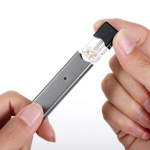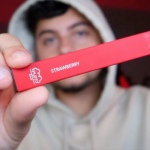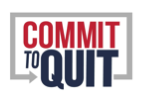
Informed parents help to make happy, healthy children.
Substance Abuse Prevention – Know the Risks of Using!
Kids often receive mixed messages about drugs and alcohol from the media, their peers, and even their parents. It’s critical to speak to your children in an informed way about alcohol and substance abuse from an early age. Parents have the power to better equip their children with the tools needed to handle the pressures and influences to use drugs. Alcohol and other drugs are powerful substances with the potential to cause harm to the mind and body. Learn more about how you can protect your child from drug use and abuse, and the importance of teaching your child to resist drugs and alcohol.
More Useful Links!
Get Smart About Drugs – U.S. Drug Enforcement Agency website for parents
Above the Influence – Created for the National Youth Anti-Drug Media Campaign (out of the Office of National Drug Control Policy), this youth designed campaign shares facts and resources on how teens can aware of and rise above the influences around them.
National Institute on Drug Abuse for Teens – A website specifically designed for teens looking for answers on the science behind drug abuse. There’s downloadable art, media, a blog, and honest answers to any questions a teen may have. Parents and teachers can also find tools on how to help their kids understand the science.
But What About the Children? Campaign -A campaign from the organization National Families in Action (NIFA), the website provides resources for citizens to demand that if states have marijuana legislation, there are provisions to protect children. Find news and resources on medical studies and what states across the country are doing to protect children.
Just Think Twice – Created by the Drug Enforcement Agency (DEA) for teens, this website details the facts and consequences of drug use and gives teens an opportunity to ask questions and learn more about the DEA’s role.
The Search Institute Survey of John Winthrop and Valley students conducted in January 2019 revealed that only 57% of youth have clear rules and consequences at home, and parents who monitor their whereabouts. SAPC targets “parental permissiveness” as one of the root causes of underage drinking and drug use in our three towns. 22% of Valley’s seniors and juniors reported parental permissiveness around using marijuana products and 10% reported parental permissiveness around drinking alcohol regularly. With 61% of juniors and 63% of seniors reporting drinking at a party in the last year with peers SAPC continues to focus on alcohol availability to underage youth in our community.
Founded as Students Against Driving Drunk in 1981 in Wayland, Massachusetts, SADD has grown to become the nation’s leading peer-to-peer youth education and prevention organization with thousands of chapters in middle schools, high schools, and colleges. SADD continues to endorse a firm “No Use” message related to use of alcohol and other drugs, and highlights prevention of all destructive behaviors and attitudes that are harmful to young people, including traffic safety, substance abuse, and an array of issues dealing with personal health and safety.
In 2020 approximately 1 in 5 or 20% of high schoolers reported vaping nicotine products (click here for reference). Young people who vape are more likely to start smoking traditional cigarettes compared to their peers who do not vape. We care because e-cigarettes marketed themselves as “safe” and “cool” to millions of young people through social media ads and influencers before federal and state regulations could catch up and stop them. We care because nicotine is addictive and we want to prevent a new generation from getting started.
What is a Vape?
Vapes are the more commonly used name to describe electronic nicotine delivery systems or (ENDS). These have become very popular over the past several years. They were created in 2003 however, e-cigarettes or “vapes” hit the market hard in the 2010s. JUUL, a specific brand of e-cigarettes marked themselves to cigarette users as a “safer” alternative and JUUL devices showed up in ads all over social media with popular influencers using them. Keep reading to learn more about these devices.
How does it work?
In most e-cigarettes puffing activates the battery powered heating device which vaporizes the liquid in the cartridge. A person then inhales the aerosol. The aerosol containing nicotine enters the body and stimulates the adrenal glands releasing a hormone called epinephrine or more commonly known as adrenaline this releases more dopamine in your brain. Pleasure caused by nicotine’s interaction with the brain’s reward system motivates some people to use nicotine again and again, despite possible risks to their health and well-being.
Common e-cigarette brands:
 JUUL – JUUL is a brand of e-cigarettes that became immensely popular over the past several years. So popular in fact that people often refer to “vaping” as “JUULing.” JUUL is a reusable device requiring the user to purchase “pods” and charge the battery. Currently JUUL can only sell either menthol or tobacco flavors due to the federal ban on any other flavor for reusable devices.
JUUL – JUUL is a brand of e-cigarettes that became immensely popular over the past several years. So popular in fact that people often refer to “vaping” as “JUULing.” JUUL is a reusable device requiring the user to purchase “pods” and charge the battery. Currently JUUL can only sell either menthol or tobacco flavors due to the federal ban on any other flavor for reusable devices.
 Puff Bar – Puff Bar is a brand of disposable e-cigarettes. Once the user has finished the Puff Bar is thrown out, there are no refills or need to charge the battery. These devices are popular among teens because they are cheaper and come in many different flavors like strawberry, lemon, grape, mango etc. Puff Bar and other disposable brands are not included in the federal flavor ban since they cannot be reused.
Puff Bar – Puff Bar is a brand of disposable e-cigarettes. Once the user has finished the Puff Bar is thrown out, there are no refills or need to charge the battery. These devices are popular among teens because they are cheaper and come in many different flavors like strawberry, lemon, grape, mango etc. Puff Bar and other disposable brands are not included in the federal flavor ban since they cannot be reused.
Other popular brands include: MOTI, SMOK, Blu, and HQD.
Currently in Connecticut the age for smoking tobacco or nicotine products is 21. Teens report accessing vaping products often from friends or siblings. In 2021 Tri Town teens in 7th through 12th grade reported decreased use of e-cigarettes. This is great news! 13% of Tri Town high schoolers reported past 30 days use while nationally the average is around 20%. While teens have had less contact with their peers this past year due to the pandemic there are also a lot of new targeted campaigns at work to decrease teen use.
Signs of use:
- Sweet aromas – Many single use devices can legally sell flavors like berry, candy and fruity flavors.
- Wheezing, coughing and shortness of breath – Vaping nicotine or “flavor only” products irritate the lungs and throat.
- Asking for more allowance- Vape devices and refills are pricey. A person can spend $50-$100 per month.
- Vape devices are small and easily hidden. Do your research and google vape devices to see what products look like so you can keep an eye out.
Are they really addictive?
Here are some signs you or someone else is hooked:
- Unsuccessful efforts to quit
- Giving up important activities with friends or families in favor of use
- Continuing use even when it causes problems fulfilling everyday tasks at home, school or work
Tips to help quit:
- Help your teen make a list of reasons why they want to quit – some common ones are protecting health or saving money.
- Set a date and time to quit.
- Ask a doctor about nicotine replacement therapy.
- Teens, text DITCHVAPE to 88709 (More information at truthinitiative.org/thisisquitting).
- Parents of vapers can text QUIT to (202) 899-7550 for tips to help their teen.
- Visit becomeanex.org for more information and help quitting.
- Check out www.YaleQuitVaping.com
- Check out Tri-Town’s Mental Health and Substance Use pages for more information.
- Visit ValleyShoreCollaborative.org for local providers specializing in Addiction Support + Recovery.
Don’t give up on them. It might take more than one try.
Tobacco rates have been continually decreasing in the tri-town area, as well as nationally. Only 6% of Valley High School students have smoked cigarettes once or more in the past 30 days, and 91% of Valley students feel that it is risky to smoke one or more packs of cigarettes per day. (SEARCH survey 2017). However, this does not account for vaping. According to the 2019 National Youth Tobacco Survey 27.5% of high schoolers use e-cigarettes or “vape.” In the upcoming 2021 survey SAPC will include specific questions on vaping products in order to accurately address the national vaping crisis in our community. To learn more about vaping visit the links below.
Quick Facts about the Risks of Vaping https://www.cdc.gov/tobacco/basic_information/e-cigarettes/Quick-Facts-on-the-Risks-of-E-cigarettes-for-Kids-Teens-and-Young-Adults.html
Quitting Vaping Using an App https://truthinitiative.org/what-we-do/quit-smoking-tools
Healthy Conversations about Tobacco
http://www.preventionworksct.org/file_download/inline/621da719-9a7b-4292-a2c0-4737b0f04b13
Facts and information from the CDC
https://www.cdc.gov/tobacco/
Information from Above the influence
http://abovetheinfluence.com/drugs/tobacco-nicotine/#facts
Signs and symptoms of abuse
https://easyread.drugabuse.gov/content/signs-tobacconicotine-use-and-addiction
 How to quit: https://smokefree.gov/
How to quit: https://smokefree.gov/
For Free Help or Information to Quit call the CT Quitline at 1-800-784-8669 or For the hearing impaired -TTY number is 1-877-777-6534 or go to www.CommitToQuitCT.com to enroll online.
Local Treatment:
Middlesex Hospital’s Smoking Intervention Program
Meetings are by appointment, call 860-358-5420.
https://middlesexhospital.org/our-services/hospital-services/chronic-care-management/smoking-intervention
Alcohol is the most commonly used substance by teens in our community. The SEARCH survey taken in January 2019 showed that almost 50% of juniors and seniors report having used alcohol once or more in the past 30 days, and 20% of high school students surveyed think it is not risky to have five or more drinks once or twice a week.
Parents’ guide to underage drinking
http://www.preventionworksct.org/file_download/inline/04a05ba0-c1a8-4736-93a0-5d9f73b87002
Partnership for Drug Free Kids
https://drugfree.org/article/how-to-address-underage-drinking/
Talk they hear you campaign
https://www.samhsa.gov/underage-drinking
National Institute on Drug Abuse for Teens
https://teens.drugabuse.gov/drug-facts/alcohol
Signs and Symptoms
https://drugabuse.com/library/alcohol-abuse/
Local Alcohol Anonymous support groups
https://www.ct-aa.org/find-a-meeting/
For treatment see link below for local addiction services or call to speak with Tri Town’s clinical director Melanie Meyer, LMFT at 860-526-3971 for further assistance in navigating treatment options.
More Useful Links!
SetTheRulesCT is designed to provide parents and adults with information and resources to help parents keep Connecticut’s youth from drinking alcohol.
Mothers Against Drunk Driving (MADD)
Substance Abuse and Mental Health Services Administration Underage Drinking Prevention
Marijuana is the second most commonly used substance by teens in our community. About 30% of high school students who participated in the SEARCH survey*, report having used marijuana once or more in the past 30 days, and 64% do not perceive using marijuana once or twice a week as risky behavior. We are finding that the perception of harm is going down concerning marijuana use. When the perception of harm goes down, the amount of usage goes up. According to the SEARCH survey*, 78% of high school students feel that their parents would disapprove of them using marijuana, but only about 30% of students feel their peers would disapprove of them smoking marijuana. (*SEARCH survey 2019)
Talk to your teen about marijuana
http://www.preventionworksct.org/file_download/inline/e657596e-663d-4664-bc00-bd84131ef25a
Information from Above the influence
http://abovetheinfluence.com/drugs/marijuana/#facts
Marijuana effects on youth from the National Institute of drug abuse
https://www.drugabuse.gov/publications/research-reports/marijuana/how-does-marijuana-use-affect-school-work-social-life
Smart Approaches to Marijuana: Lessons learned… from Washington and Colorado
https://learnaboutsam.org/wp-content/uploads/2016/11/SAM-report-on-CO-and-WA-issued-31-Oct-2016.pdf
Signs and Symptoms
https://drugabuse.com/library/marijuana-abuse/
For information on treatment options see local resources below or reach out to Tri Town’s clinical director Melanie Meyer, LMFT at 860-526-3971 for assistance in finding other resources.
Over 2 million people in the U.S. are suffering from a substance use disorder related to opioids. 80% of people who use heroin first misused a prescription opioid. Read more statistics here https://www.drugabuse.gov/publications/drugfacts/prescription-over-counter-medications
In our community, we see very low numbers of students using prescription drugs that were not prescribed to them. While this is good news, even one student misusing prescription drugs is highly concerning due to the risk for severe consequences that can come from abusing drugs like opioids (Oxycontin, Vicodin, morphine, etc.), benzodiazepines (Xanax, Valium, Ativan) or over the counter medications like cough syrup or sleeping medications. These drugs often appear to be “safe” because they can be prescribed by a doctor. While they can be safely used under the guidance of a doctor people can become addicted to them almost immediately. Medical attention is often needed stopping these medications such as weaning off (slowly lowering the dose over time) or a medical detox (often takes place in a hospital setting so vitals can be observed by doctors).
Parent Talk Kit
https://drugfree.org/article/talk-with-your-kids/
Information from Partnership for Drug-Free kids
https://drugfree.org/article/heroin-other-opioids-from-understanding-to-action/
How prescription drugs lead to heroin
https://drugfree.org/article/rx-to-heroin/
Signs and symptoms
https://drugabuse.com/library/symptoms-and-signs-of-drug-abuse/
National Institute on Drug Abuse for Teens
https://teens.drugabuse.gov/drug-facts/prescription-drugs
Proper disposal
https://www.fda.gov/forconsumers/consumerupdates/ucm101653.htm
Visit Stop Medicine Abuse, a website resource created to provide information and stop over-the-counter (OTC) cough medicine abuse.
- TALK to your teen about OTC cough medicine abuse.
- MONITOR your medicine cabinets and your teen’s activities.
- SHARE what you have learned with other parents and community leaders.
Heroin has continued to be a national crisis with 948 deaths in Connecticut from heroin in 2018. Heroin is often used after someone has tried prescription opioids. Heroin can be snorted, injected or smoked. Many people start out by smoking it and eventually inject it due to seeking a faster high. There are many risks that come with injecting heroin such as overdose or HIV/Hepatitis which may happen when reusing or sharing needles.
Naloxone is a medication that has the ability to “reverse” an overdose. Anyone is able to access Naloxone even without a prescription by going to CVS or Walgreens. It may be useful to have access to this if you or someone you know uses heroin or other opioids. Find out more here.
What you need to know about Heroin
http://kidshealth.org/en/kids/know-drugs-heroin.html
Facts and information from Above the Influence
http://abovetheinfluence.com/drugs/heroin/
How prescription drugs lead to heroin
https://drugfree.org/article/rx-to-heroin/
Signs and Symptoms
https://www.webmd.com/mental-health/addiction/tc/heroin-topic-overview#1
Free Parent Toolkit!
TTYSB mailed out these following postcards in Spring 2017 to increase adults’ awareness of marijuana’s effects on youth.












Valley Shore Collaborative: VSC is made up of parents and providers who work to help identify gaps in service in the local community, share resources, and work together to develop both traditional and non-traditional means to fill gaps and meet the needs of families with children with severe emotional and/or behavioral health needs. https://valleyshorecollaborative.org/
Partnership to End Addiction: https://drugfree.
Community Health Resources: Adolescent Substance Abuse Treatment
ACRA is six-month program designed to help teens replace alcohol or drug use with positive social activities and behaviors. By helping teens understand how substance use is negatively impacting their lives, we work with them to set goals, learn new skills and make positive choices. With this link: http://www.chrhealth.
In-home family therapy specialized for teens with substance abuse, Multi-Dimensional Family Therapy through Child and Family Agency in Essex, CT. You can read about MDFT here. Visit Child and Family Agency to inquire about services. Insurances accepted.
Project Courage in Old Saybrook, CT. Specialized addiction treatment for adolescents and young adults that is client centered and addresses obstacles that have plagued the addiction treatment industry: We believe addiction is an opportunity for change. Insurances accepted. http://www.projectcourageworks.com/
Alcohol Anonymous support groups http://www.ct-aa.org/home/
Rushford offers addiction recovery programs for adults and adolescents. Click here for a flyer and visit https://rushford.org/ for more information. Insurances accepted.
Gilead provides a broad range of high quality health care and recovery support services in the home and community to improve mental health, physical well-being, independence, and community integration for the individuals. For more information visit http://gileadcs.org/.
Gambling free 24-hour toll-free helpline provides assistance to callers with gambling problems themselves, or someone they care about. Callers will be referred to the types of assistance that best suits their needs. Call 1-888-789-7777, or visit http://www.ncpgambling.org/help-treatment/chat/ for their live chat option.